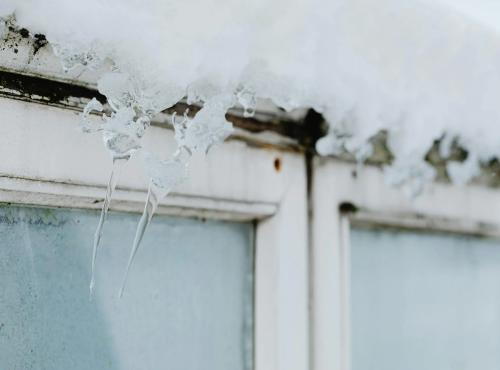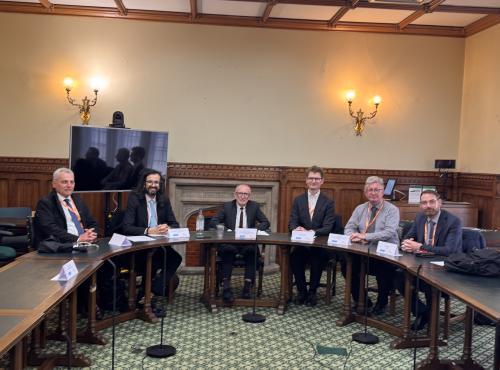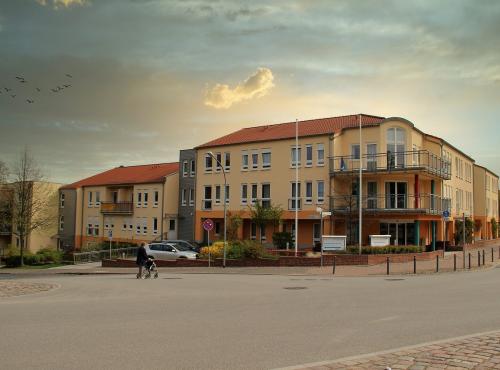Should Clean Air be a Human Right?
The Clean Air (Human Rights) Bill, also known as Ella’s Law, is a Private Members Bill led by Baroness Jenny Jones of Moulsecoombe which would make protection from pollution a human right, creating a legal right to breathe clean air. Having successfully passed through the House of Lords, the Bill will now be led through the Commons by Caroline Lucas MP.
In the UK, air pollution is the largest environmental risk to public health, and 28,000-36,000 deaths in the UK are associated with human-made air pollution every year. Achieving clean air has the potential to protect life, improve health, and mitigate climate change.
Ella’s Law
The Bill is named after Ella Adoo-Kissi-Debrah, the nine-year-old girl who tragically died in 2013 and became the first person in the UK to have air pollution listed as a cause of death. On 15 February 2023, ten years will have passed since Ella’s death.
Ella’s mother, Rosamund Adoo-Kissi-Debrah CBE was named in the 2023 New Year’s Honours list for services to public health, in recognition of her tireless campaigning for better air quality and contribution to public debate. Rosamund has been working with Baroness Jones to introduce the Clean Air (Human Rights) Bill.
Will your MP stand up for Clean Air?
To help secure the right to clean air for your family, would you ask your MP to support EDM 679 today? Send a quick email outlining why this matters to you and what you would like them to do.
Making clean air a legal right for present and future generations will require support from as many MPs as possible from across the political spectrum. To ensure the Bill receives the due parliamentary time and political consideration it deserves, an Early Day Motion (EDM) has been tabled. At last count, EDM 679 has been signed by thirty-eight MPs, including four officers of the All-Party Parliamentary Group on Carbon Monoxide.
What’s in the Bill? Top twelve changes the Bill would make
- Creates a right for everyone to breathe clean air (s.1,1)
- Comprehensively defines clean air for both indoor and outdoor environments by setting concrete limits on the levels of pollutants and emissions that clean air can contain (s.1,5, s.2 and Schedules 1 – 4) which are reviewed annually (s.3)
- Puts a duty on the government to assess, provide public information and make regulations for indoor and outdoor air quality (s.5)
- Implements a five-year deadline* for the Secretary of State and local authorities to achieve and maintain clean air in England and Wales (s.1,2) and (s.9). *Under specific circumstances, an application can be made for this deadline to be extended, in discreet specified areas.
- Sets maximum limits for indoor air pollutants, including carbon monoxide (Schedule 2)
- Enables regulations to be placed on owners of buildings used as places of work or by the public, to require them to assess and report on indoor quality at representative locations (s.5,3(b))
- Enables regulations to place a duty on developers to monitor and report on indoor air quality in newly refurbished or constructed residential developments during the first 12 months of occupation (s.5,3(c))
- Establishes the Citizens’ Commission for Clean Air (CCCA) to monitor and enforce the right to breathe clean air and oversee the duties to achieve and maintain clean air in England and Wales (s.16 and Schedule 7)
- Places duties for clean air on a range of national authorities: the Environment Agency; the Committee on Climate Change; local authorities in England and Wales; the Civil Aviation Authority; National Highways; Historic England; Natural England; and Network Rail. (s.7 – s.15)
- Requires government to provide the necessary funding to relevant national authorities, local authorities, and the CCCA so that these bodies can fulfil their new duties (s.1,4)
- Sets out ‘environmental principles’ to be applied by the Secretary of State and the relevant national authorities when exercising their duties. These include the principle of “polluter pays”, where the costs of pollution or of clean-up efforts should be borne by those responsible for causing the pollution (s.20(c))
- Requires the Secretary of State to make regulations to enable energy efficiency improvements to domestic and non-domestic premises that reduce energy use and emissions of carbon dioxide (s.6,6)
Global developments in Clean Air
Internationally, the importance of Clean Air has recently been recognised and legislated for. On 28 July, the UN General Assembly adopted a resolution which declared access to a clean, healthy, and sustainable environment to be a universal human right. The UK was one of 161 countries to vote in favour of the resolution. Speaking during Committee stage in the House of Lords on 18 November, Baroness Jones stated that “the Government have signed up to a UN resolution to make clean air a human right. My Bill turns that declaration into something meaningful in England and Wales.”
On 26 October, the European Commission published proposals to revise the EU’s ambient air quality directives, stating that “clean air and water are essential for the health of people and ecosystems”. The proposals accelerate the EU’s ambition to achieve zero harmful pollution by 2050.
Article by Kevin Herron & Laura Fatah
Photo by Ella Ivanescu on Unsplash




